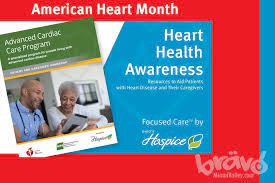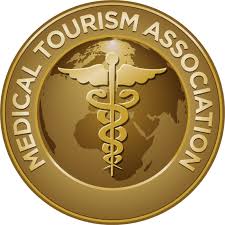
Enhancing Heart Health: Innovations in Cardiac Care Programs
The Evolution of Cardiac Care Programs: A Lifesaving Journey
Cardiovascular diseases are a leading cause of mortality worldwide, emphasizing the critical importance of effective cardiac care programs. Over the years, advancements in medical technology and treatment approaches have revolutionized the way we diagnose and manage heart-related conditions.
One of the key components of modern cardiac care programs is early detection through innovative diagnostic tools such as electrocardiograms (ECGs), echocardiograms, and cardiac catheterization. These tests enable healthcare providers to identify heart issues at their onset, allowing for prompt intervention and treatment.
Surgical interventions have also seen significant progress, with minimally invasive procedures becoming increasingly common in cardiac care programs. Techniques such as angioplasty, stent placement, and robotic-assisted surgeries offer patients faster recovery times and reduced risks compared to traditional open-heart surgery.
Furthermore, the integration of telemedicine and remote monitoring has enhanced the delivery of cardiac care services, particularly for patients in rural or underserved areas. Through virtual consultations and real-time data tracking, healthcare professionals can provide continuous support to individuals managing chronic heart conditions.
Cardiac rehabilitation programs play a crucial role in promoting long-term heart health by focusing on exercise training, dietary counseling, stress management, and education about cardiovascular risk factors. These comprehensive initiatives empower patients to take control of their well-being and reduce the likelihood of future cardiac events.
In conclusion, the evolution of cardiac care programs underscores a commitment to improving patient outcomes and quality of life. By leveraging cutting-edge technologies, personalized treatment plans, and holistic approaches to heart health, healthcare providers are better equipped than ever to address the challenges posed by cardiovascular diseases.
Six Key Advantages of Cardiac Care Programs: From Early Detection to Personalized Management
- Early detection of heart issues for timely intervention
- Minimally invasive surgical procedures reduce recovery time and risks
- Integration of telemedicine enhances access to cardiac care services
- Comprehensive cardiac rehabilitation programs promote long-term heart health
- Personalized treatment plans tailored to individual patient needs
- Continuous monitoring and support for patients managing chronic heart conditions
Four Key Challenges Facing Cardiac Care Programs: Financial Burdens, Wait Times, Surgical Risks, and Access Disparities
- Costly procedures and treatments may pose financial burdens for patients without adequate insurance coverage.
- Long wait times for specialized cardiac care services can delay timely intervention and treatment.
- Potential risks associated with surgical interventions, such as infection, bleeding, or adverse reactions to anesthesia.
- Limited access to advanced cardiac care programs in rural or underserved areas may result in disparities in healthcare outcomes.
Early detection of heart issues for timely intervention
Early detection of heart issues is a critical advantage offered by cardiac care programs, as it enables healthcare providers to intervene promptly and effectively. Through the use of advanced diagnostic tools and screening methods, such as electrocardiograms and echocardiograms, potential heart conditions can be identified at their earliest stages. This proactive approach not only allows for timely medical interventions but also increases the likelihood of successful treatment outcomes and improved patient prognosis. By detecting heart issues early on, cardiac care programs play a crucial role in safeguarding individuals’ heart health and well-being.
Minimally invasive surgical procedures reduce recovery time and risks
Minimally invasive surgical procedures in cardiac care programs offer a significant advantage by reducing both recovery time and risks for patients. Compared to traditional open-heart surgery, these advanced techniques involve smaller incisions, leading to quicker healing and shorter hospital stays. By minimizing trauma to surrounding tissues, patients undergoing minimally invasive procedures experience less pain and scarring, enhancing their overall comfort and well-being during the recovery process. Furthermore, the decreased risk of complications associated with these procedures contributes to improved outcomes and a faster return to normal activities, ultimately benefiting the patient’s overall quality of life.
Integration of telemedicine enhances access to cardiac care services
The integration of telemedicine in cardiac care programs represents a significant advancement that enhances access to essential services for individuals with heart-related conditions. By leveraging remote consultations and real-time monitoring, patients can receive timely medical guidance and support regardless of their geographical location. This innovative approach not only improves convenience for patients but also enables healthcare providers to deliver continuous care and monitoring, ultimately leading to better outcomes and reduced barriers to accessing critical cardiac services.
Comprehensive cardiac rehabilitation programs promote long-term heart health
Comprehensive cardiac rehabilitation programs play a vital role in promoting long-term heart health by offering a holistic approach to recovery and well-being. Through a combination of tailored exercise regimens, nutritional guidance, stress management techniques, and education on cardiovascular risk factors, these programs empower individuals to take proactive steps towards improving their heart health and reducing the likelihood of future cardiac events. By focusing on lifestyle changes and ongoing support, comprehensive cardiac rehabilitation programs not only aid in physical recovery but also instill valuable habits that can lead to sustained heart wellness in the long run.
Personalized treatment plans tailored to individual patient needs
One significant advantage of cardiac care programs is the implementation of personalized treatment plans tailored to individual patient needs. By customizing medical interventions based on a patient’s specific health condition, lifestyle factors, and preferences, healthcare providers can optimize the effectiveness of treatment while minimizing potential risks and side effects. This personalized approach ensures that each patient receives targeted care that addresses their unique cardiac concerns, leading to improved outcomes and enhanced overall well-being.
Continuous monitoring and support for patients managing chronic heart conditions
Continuous monitoring and support for patients managing chronic heart conditions is a vital pro of cardiac care programs. Through remote monitoring technologies and regular check-ins with healthcare providers, individuals with heart conditions receive ongoing guidance and intervention to effectively manage their health. This proactive approach not only helps in early detection of potential issues but also empowers patients to make informed lifestyle choices and adhere to treatment plans, ultimately improving their quality of life and reducing the risk of complications.
Costly procedures and treatments may pose financial burdens for patients without adequate insurance coverage.
Costly procedures and treatments within cardiac care programs can present a significant challenge for patients who lack sufficient insurance coverage. The financial burden associated with advanced cardiac interventions, such as surgeries and long-term medications, may deter individuals from seeking necessary care or force them to make difficult decisions regarding their health. Without adequate financial support, patients facing heart-related conditions may experience heightened stress and anxiety, further impacting their overall well-being. Addressing the issue of affordability in cardiac care programs is essential to ensure that all individuals have access to life-saving treatments without the added strain of financial hardship.
Long wait times for specialized cardiac care services can delay timely intervention and treatment.
Long wait times for specialized cardiac care services pose a significant con in the realm of cardiac care programs, as they have the potential to delay crucial interventions and treatments for individuals in need. In cases where prompt medical attention is essential for addressing heart-related issues, extended waiting periods can exacerbate health conditions, increase patient anxiety, and even lead to adverse outcomes. Timeliness is critical in cardiac care, and any delays in accessing specialized services may hinder the effectiveness of treatment plans and jeopardize patient well-being. Efforts to streamline appointment scheduling, optimize resource allocation, and prioritize urgent cases are essential to mitigate the negative impact of long wait times on the delivery of quality cardiac care.
Potential risks associated with surgical interventions, such as infection, bleeding, or adverse reactions to anesthesia.
Surgical interventions, while often necessary and effective in cardiac care programs, come with inherent risks that cannot be overlooked. Potential complications such as infection, bleeding, or adverse reactions to anesthesia are critical considerations that patients and healthcare providers must address before proceeding with any surgical procedure. Infections can prolong recovery time and pose a threat to overall health, while excessive bleeding may require additional interventions to manage. Adverse reactions to anesthesia can also lead to serious consequences, highlighting the need for thorough preoperative assessments and vigilant postoperative monitoring to mitigate these risks and ensure patient safety throughout the treatment process.
Limited access to advanced cardiac care programs in rural or underserved areas may result in disparities in healthcare outcomes.
Limited access to advanced cardiac care programs in rural or underserved areas poses a significant challenge and can lead to disparities in healthcare outcomes. Patients residing in these regions may face barriers such as long travel distances, lack of specialized medical facilities, and limited healthcare resources, making it difficult for them to receive timely and comprehensive cardiac care. As a result, individuals in rural or underserved areas may experience delays in diagnosis, suboptimal treatment options, and higher rates of cardiovascular complications compared to those in urban centers with better access to advanced cardiac care programs. Addressing this conundrum is crucial to ensuring equitable healthcare delivery and improving overall cardiovascular health outcomes for all populations.



